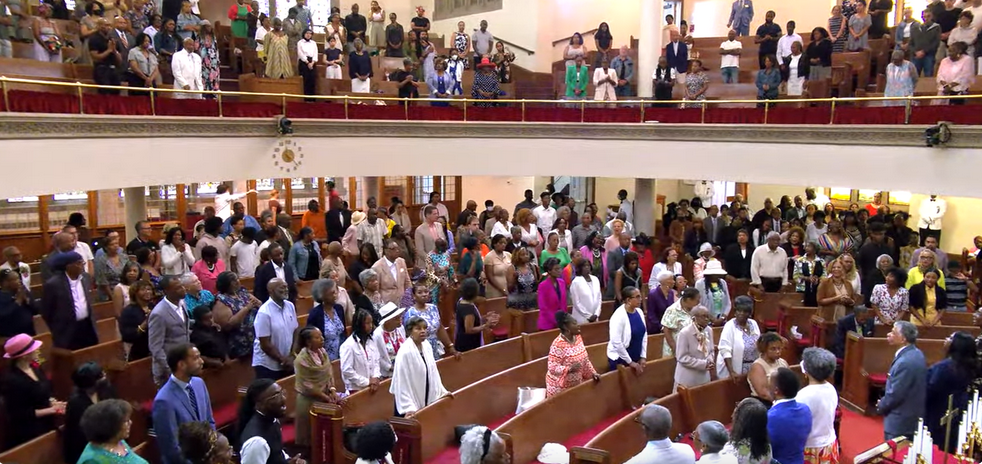[Alliance of Families for Justice]
AFJ’s Soffiyah Elijah: “Alliance of Families for Justice is calling on the Governor to immediately share his plan of action to care for incarcerated New Yorkers during the pandemic.”
Photo: YouTube
The Alliance of Families for Justice (AFJ), a statewide advocacy group for families of incarcerated New Yorkers, is collecting daily reports from inside New York’s prisons about conditions during the Covid-19 pandemic.
This is the first of regularly issued reports to the media on conditions behind the prison walls in New York State.
Over the past month, AFJ has been reporting that incarcerated New Yorkers, who number 40,956 in 52 facilities across the state, continue to lack access to personal protective equipment such as face masks — which Governor Cuomo required by executive order, hand sanitizer, and other equipment; are unable to socially distance; lack access to medical care, personnel, and testing for Covid-19; and have less communications access to family members and legal counsel.
Reports from over the last week from incarcerated New Yorkers and families include:
● A typical dorm houses 55 people. While most of the beds are single beds, there are usually several bunk beds also in the dorm unit. There is a single hand sanitizer dispenser in the unit placed near the guard’s station. There is one bathroom for use by 55 people. The bathroom contains 8 shower stalls, 3 urinals, 6 sinks and 4 toilets. There are 3 washing machines and 3 dryers. It is common for one or more of these to not be working.
● Recently, restrictions have been placed on the quantity of items that can be purchased thru commissary. There have been several reports of food being more limited in the mess halls.
● Testing for COVID19 is generally not happening. No information is being shared inside regarding infected staff or incarcerated people. Therefore, nobody knows if they have been exposed to someone who has the virus. The usual “response” from DOCCS is to lockdown the whole tier or the entire unit.
Due to severe limits on social visits by DOCCS and on the delivery of care packages, Alliance of Families for Justice will be launching a “Family Support Stipend” program within days — additional information will be announced to the media this week.
AFJ’s Executive Director, Soffiyah Elijah, also responded to reports that 70 percent of people incarcerated in federal prisons in one series of tests were found to be positive for Covid-19, saying “There’s little to no testing in New York’s 52 state prison facilities, but we can see from the reports of testing in the federal facilities that incarcerated people may be infected at many times the rate of the non-incarcerated population. Incarcerated people are left with little to no PPE, ability to social distance, reduced access to nutritious food, even reduced access to family and legal counsel.
“And now we hear that New York has put incarcerated people to work manufacturing masks, over 1.2 million so far, for about $1 an hour, and with no or limited access to those very same protections they are manufacturing. It is shameful, an injustice, and needs to be immediately addressed.
“Alliance of Families for Justice is calling on the Governor to immediately share his plan of action to care for incarcerated New Yorkers during the pandemic. Families and concerned citizens deserve to know the specific actions that will be implemented in each of the 53 prisons across the state during this period of crisis.”
Alliance of Families for Justice works with families and advocates across New York State to advocate for the rights of incarcerated and formerly incarcerated New Yorkers, and to bring reforms to the criminal justice and prison system. Find out more atwww.afj-ny.org





